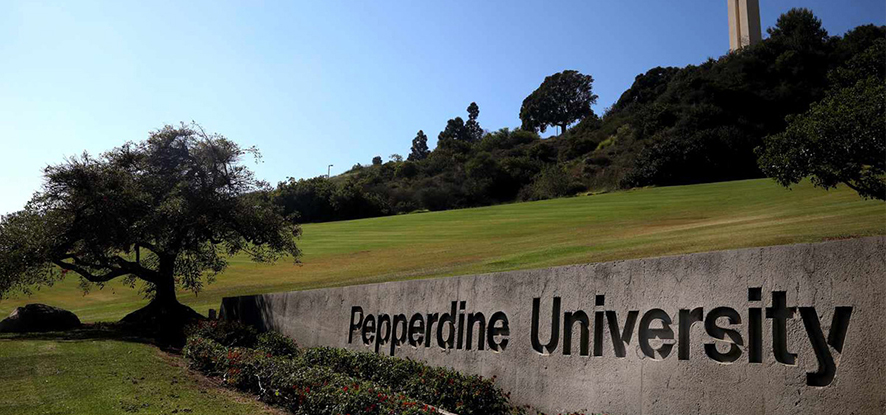Navigating the Executive MBA Curriculum

What do Executive MBA courses entail? EMBA programs offer core courses that go beyond the basic principles and business foundations gained in a traditional MBA program. They are designed for experienced professionals looking to further their business expertise through advanced topics in business.
Executive MBA students develop strategic leadership skills through unique program components such as specialized elective courses, workshops, and international experiences—all geared towards developing personal growth and gaining a competitive advantage in the business world.
Core EMBA Courses
An executive MBA program is an ideal option for those seeking to enhance their business skills, as it offers a well-rounded education through its core courses. These essential components of the executive MBA curriculum lay the foundation for students’ understanding of various aspects of the business world.
The Executive Master of Business Administration program at Pepperdine University is a 19-month program made up of 45 units of course credit. The core courses, which include topics such as management, global economics, and strategic marketing, provide a thorough overview of important concepts and strategies relevant to executives in today’s corporate landscape.
Redefine Your Leadership. Drive Ethical Impact
Designed for accomplished leaders, the Executive MBA delivers strategic insight, global perspective, and the real-time application you need to lead at the highest level. Ranked as one of the best programs in the nation by Fortune Magazine, the Pepperdine EMBA empowers you to integrate your values with cutting-edge business strategy, shaping you into a leader of true influence.
Get in Touch
Fill out the Request Information form to learn about the opportunities that await you as a student at Pepperdine Graziadio.
Start Your Application
Ready to start your journey to Pepperdine Graziadio? Begin your application today to take the next step towards your future.
Marketing Strategy & Management

Marketing Management courses focus on the importance of having a market-oriented and customer-centric marketing strategy as part of a comprehensive business plan. Advanced marketing courses allow students to:
- Utilize various analytical perspectives, decision-making tools, and marketing principles in making strategic choices such as product offerings and pricing
- Discuss competitive strategies suitable for different stages of a product’s lifecycle
- Create comprehensive plans for integrated marketing communications that are aligned with overall business objectives and strategy
Corporate Finance & Global Economics
Corporate finance courses cover a wide variety of topics, encompassing investment decision-making in uncertain circumstances, financial instrument pricing, market efficiency, development of corporate financial policies, and managerial finance. Students will study financial theory as well as address unique challenges faced by multinational corporations and startups.
These finance and economics courses provide students with a strong understanding of economic theory, capital structures, the dynamics within the world of finances, and how it impacts business choices. Graduates leave the program with valuable skills to create robust business plans that have a solid grounding in financial accounting principles.
Operations Management
An essential component of the EMBA curriculum is operations management, which focuses on enhancing process efficiency. It covers various topics including business process improvement, supply chain management, and relevant analytics to equip students with valuable skills for driving organizational success in a global economy.
Students gain expertise in streamlining business processes, implementing new strategies, and analyzing their impact on company performance. This ensures that operations management remains aligned with market standards by utilizing practical models and providing necessary insights for effective managerial decision-making.
Pepperdine University's EMBA Program

Pepperdine University Graziadio School of Business is known for its highly regarded EMBA program, which places great emphasis on developing strategic leadership abilities. The curriculum centers around instilling values-based leadership, combining strategy and technology. It offers EMBA students the chance to improve both personally and as leaders through immersive experiences designed to set them up for success—whether running their own business or working for a multinational firm.
Executive Residential Workshop
One notable aspect of the Pepperdine EMBA program is its four-day effective executive residential workshop, which aims to provide students with powerful leadership skills. This workshop provides an immersive experience and introduces students to team-based learning methods as well as experiential learning opportunities.
International Residential Experience
The program also includes an international residential experience. These specialized modules are intensive workshops that offer an up-close look at business practices in rapidly developing regions across the globe. They tackle key global challenges such as effectively managing climate risks, identifying potential avenues for growth, navigating cultural differences, and understanding emerging markets.
Participation in these courses includes international field studies and a mandatory global business week where student teams have the opportunity to travel abroad, connect with leaders in global management and industry professionals, as well as directly observe business operations within their areas of interest.
Applied Strategic Research Project (ASRP)
The ASRP is an essential component of the Pepperdine EMBA program and extends over multiple trimesters. It encompasses a wide range of subject areas including organizational behavior, finance, economics, and marketing.
Aligned with their EMBA curriculum, students complete the ASRP to ensure that they can apply theoretical concepts practically while progressing in their academic journey.
This crucial aspect highlights the hands-on approach incorporated into the program’s teachings to promote a deeper understanding and appreciation among students for all aspects covered by the curriculum.
Dedicated Executive Mentor
Pepperdine University stands out as the only EMBA program to provide a dedicated executive mentor. The role of the executive mentor is pivotal within the Pepperdine EMBA program. They are actively involved with the class cohort for the entire program duration. They offer individual mentorship and group guidance, critique scholarly work, provide professional advice, mediate any arising conflicts, and ensure a consistent educational journey for each Executive MBA cohort.
Capstone Experience For Executive MBA Students
The Capstone Experience, an essential component of the EMBA program’s curriculum, integrates fundamental business principles and techniques to reinforce knowledge through a collaborative team-oriented project. This aspect of the EMBA journey brings together all acquired learnings.
Through capstone projects, students are tasked with navigating real-world challenges in running a business, such as making critical decisions and negotiating relationships within supply chains. This offers practical hands-on experience for individuals embarking on their business endeavors.
Strategic Management Capstone Project
The completion of the EMBA program is marked by the Strategic Management Capstone Project. This project encompasses a range of complex problems, covering aspects such as strategy, operations, technology, and marketing—all reflective of real-world challenges that managers encounter in their day-to-day roles.
Through tackling these issues head-on, students gain valuable experience in handling uncertainty and ambiguity while also developing skills in persuasive analysis and effective communication with stakeholders. This project encourages collaboration across different disciplines utilizing various technologies and organizational structures to find solutions.
MBA Curriculum vs. Executive MBA Curriculum
The MBA and Executive MBA programs both serve as gateways to advanced business knowledge and leadership acumen, yet they are distinct in their curricular design and intended audience.
The MBA curriculum is structured to provide a broad base in business fundamentals, suitable for individuals earlier in their career path or those seeking to switch industries or job functions. This program traditionally accommodates full-time students with its immersive, weekday class schedule that fosters a dynamic and diverse educational environment. The interaction among students with varied backgrounds enriches the learning experience, with an emphasis on theoretical frameworks and foundational business practices.
The Executive MBA curriculum is crafted for professionals who have already achieved a level of managerial experience and are looking to deepen their strategic leadership competencies. The structure of an EMBA program is tailored to the needs of busy professionals, offering classes on weekends or in modular formats that minimize disruption to their ongoing careers.
The content of EMBA courses is more focused on high-level strategic thinking and leadership, drawing on the rich professional experiences of its participants. This results in a curriculum that not only imparts advanced business strategies but also emphasizes the practical application of these strategies in a real-world context.
With smaller class sizes, the EMBA program allows for a more concentrated approach to personal and career development, catering to the needs of seasoned business leaders aiming to propel their careers to new heights.
Benefits of an Executive MBA Program
The advantages of an Executive MBA include opportunities for career advancement, continuous learning, and personal development. The coursework is directly applicable to the student’s work, providing immediate value. An EMBA equips its students with a comprehensive set of skills and experiences that can elevate their careers.
Investing in an EMBA offers professionals valuable benefits such as accelerated growth within their current positions or potential promotions to higher roles. Another advantage is exposure to diverse perspectives from classmates during interactive sessions throughout the program. With these notable benefits at hand, it’s clear why so many professionals see pursuing an Executive MBA as a worthwhile investment for enhancing their careers.
Networking Opportunities
One of the key benefits that sets an EMBA program apart is its ability to provide extensive networking opportunities. Through various avenues such as university events, conferences, engagement with professional organizations, and online platforms, students can build a diverse network of professionals from different industries.
The value of this network should not be underestimated, as many seasoned professionals credit their successful career growth to the connections they made through these networking experiences. The annual leadership conferences in particular have been instrumental in opening up new possibilities for advancement within one’s field or even beyond it.
Skill Development
EMBA programs have a strong focus on developing skills necessary for success. The curriculum is strategically designed to foster a well-rounded leadership skill set that encompasses:
- Training in effective management and leadership
- Technological proficiency
- Advanced communication aptitude
- A deep understanding of diverse global business landscapes
These essential skills are vital for leaders to cultivate professional relationships, promote teamwork, and keep up with rapid changes in the ever-evolving world of business. In addition to these core competencies, EMBA programs also emphasize critical thinking and problem-solving abilities, financial acumen, ethical decision-making, and the capacity to drive innovation and change within organizations. Students engage in various real-world scenarios and case studies that challenge them to apply their knowledge in practical settings, preparing them for the complex and dynamic nature of executive leadership roles.
By the end of the program, graduates are not only equipped with an advanced skill set, but also the confidence to implement strategic initiatives, lead diverse teams, and make impactful decisions that contribute to the success of their organizations.
Frequently Asked Questions
What is an EMBA program?
An EMBA program is a graduate-level business management program designed for professionals who are further along in their careers and want to continue working full-time while in school, often offering part-time formats like weekend classes. EMBA students typically have 10 or more years of professional experience.
Is an EMBA better than an MBA?
The effectiveness of an EMBA versus traditional MBA programs are primarily determined by one’s career objectives and current position. EMBAs are designed for individuals in leadership roles, allowing them to manage their demanding schedules more easily, while MBAs cater to those striving for executive positions.
How long is an EMBA degree?
An EMBA degree from Pepperdine University takes 19 months to complete over a 5-trimester period. With classes meeting once every three weeks on Fridays and Saturdays, the program is designed to accommodate part-time study for executives with significant managerial experience.
What are the core courses in an Executive MBA program?
The core courses in an Executive MBA program usually consist of Marketing Management, Corporate Finance, and Operations Management, covering essential areas critical to the curriculum’s overall strength and relevance.
What does the Effective Executive Residential Workshop involve?
The four-day Effective Executive Residential Workshop aims to enhance leadership abilities through hands-on and collaborative learning. The program is designed with a strong emphasis on developing key skills in teamwork, ultimately nurturing effective leaders.
Discover Your Potential with Pepperdine's EMBA Courses
Are you ready to take your executive leadership skills to the next level? Explore the comprehensive EMBA curriculum offered by Pepperdine University's Graziadio Business School. With a blend of rigorous coursework, practical experience, and transformative leadership training, our program is designed to empower you to make a significant impact in the business world. Learn more about how our EMBA courses can help you achieve your career aspirations and become a visionary leader in your industry.
Don't miss the opportunity to join a network of successful professionals and benefit from a world-class educational experience. Take the first step towards elevating your executive career by reaching out for more information on our EMBA program. Visit our website and request additional details about the curriculum, core courses, program schedule, and more to see how Pepperdine University can help shape your future success.
Redefine Your Leadership. Drive Ethical Impact
Designed for accomplished leaders, the Executive MBA delivers strategic insight, global perspective, and the real-time application you need to lead at the highest level. Ranked as one of the best programs in the nation by Fortune Magazine, the Pepperdine EMBA empowers you to integrate your values with cutting-edge business strategy, shaping you into a leader of true influence.
Get in Touch
Fill out the Request Information form to learn about the opportunities that await you as a student at Pepperdine Graziadio.
Start Your Application
Ready to start your journey to Pepperdine Graziadio? Begin your application today to take the next step towards your future.